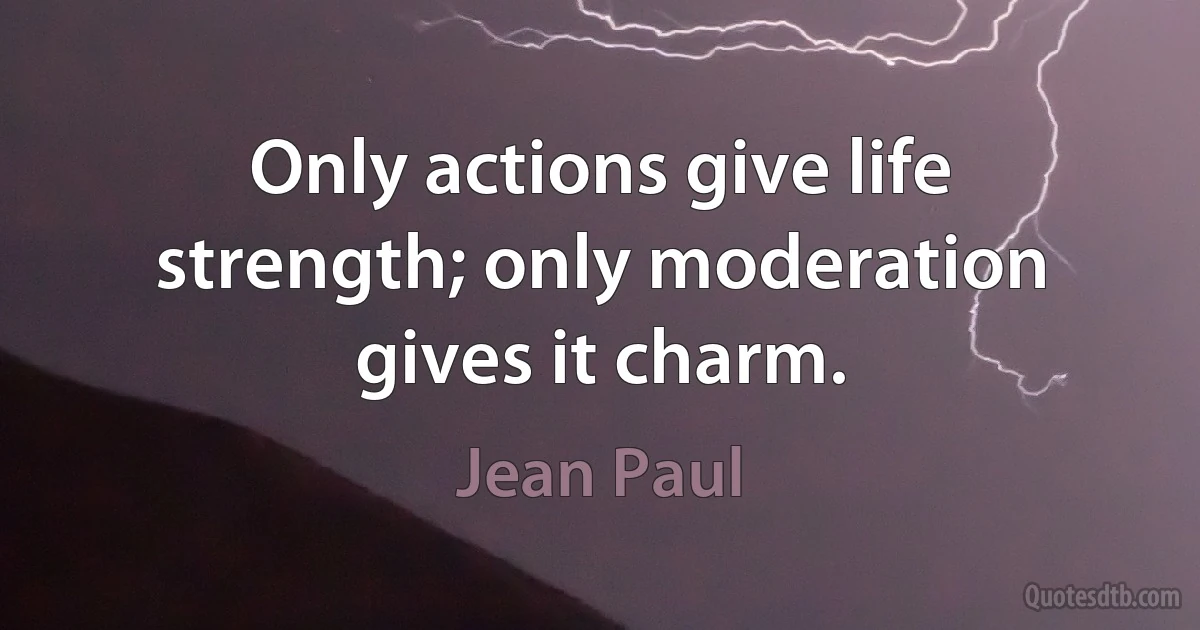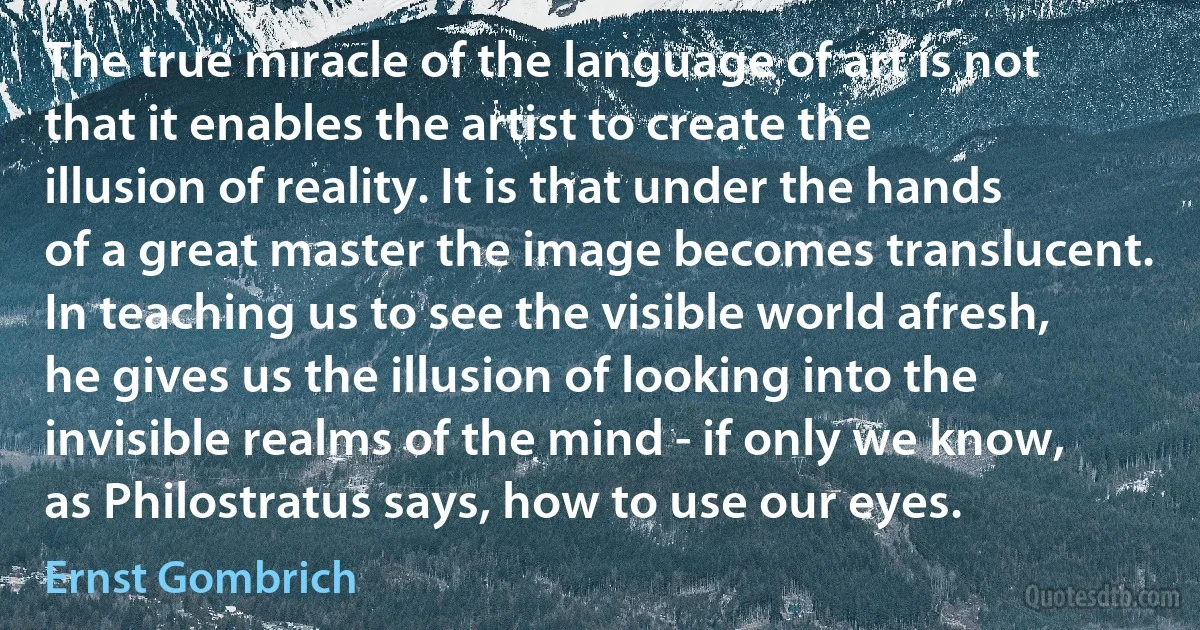Gives Quotes - page 68
The authorities teach that next to the first emanation, which is the Son coming out of the Father, the angels are most like God. And it may well be true, for the soul at its highest is formed like God, but an angel gives a closer idea of Him. That is all an angel is: an idea of God. For this reason the angel was sent to the soul, so that the soul might be re-formed by it, to be the divine idea by which it was first conceived. Knowledge comes through likeness. And so because the soul may know everything, it is never at rest until it comes to the original idea, in which all things are one. And there it comes to rest in God.

Meister Eckhart
In ressentiment morality, love for the "small,” the "poor,” the "weak,” and the "oppressed” is really disguised hatred, repressed envy, an impulse to detract, etc., directed against the opposite phenomena: "wealth,” "strength,” "power,” "largesse.” When hatred does not dare to come out into the open, it can be easily expressed in the form of ostensible love-love for something which has features that are the opposite of those of the hated object. This can happen in such a way that the hatred remains secret. When we hear that falsely pious, unctuous tone (it is the tone of a certain "socially-minded” type of priest), sermonizing that love for the "small” is our first duty, love for the "humble” inspirit, since God gives "grace” to them, then it is often only hatred posing as Christian love.

Max Scheler
My father is so expressive that things he feels even before they are thoughts are visible on his skin. He heats up. What other people work on, he was born with. He's got eyes like the sky and like hell at the same time. They're so clear and blue and alert and serious, and then they're like hell. That's how he is. He is total light and pureness and then hell. He gives totally or he gives nothing. He is like the sun, then an iceberg, then nonexistent, and then the sun again. Which is fine. It's a lot better than most people are.

Nastassja Kinski
Whether nature gives me a right, or whether God, the people's choice, etc., does so, all of that is the same foreign right, a right that I do not give or take to myself. Thus the Communists say, equal labour entitles man to equal enjoyment. [...] No, equal labour does not entitle you to it, but equal enjoyment alone entitles you to equal enjoyment. Enjoy, then you are entitled to enjoyment. But, if you have laboured and let the enjoyment be taken from you, then – ‘it serves you right.' If you take the enjoyment, it is your right; if, on the contrary, you only pine for it without laying hands on it, it remains as before, a, ‘well-earned right' of those who are privileged for enjoyment. It is their right, as by laying hands on it would become your right.

Max Stirner
I came to realize that one single human being, comprehended in his depth, who gives generously from the treasures of his heart, bestows on us more riches than Caesar or Alexander could ever conquer. Here is our kingdom, the best of monarchies, the best republic. Here is our garden, our happiness.

Ernst Jünger
The state gives orders and coerces, religion teaches and persuades. The state prescribes laws, religion commandments. The state has physical power and uses it when necessary; the power of religion is love and benificence. The one abandons the disobedient and expels him; the other receives him in its bosom and seeks to instruct, or at least to console him.

Moses Mendelssohn
Persecution, then, gives rise to a peculiar technique of writing, and therewith to a peculiar type of literature, in which the truth about all crucial things is presented exclusively between the lines. That literature is addressed, not to all readers, but to trustworthy and intelligent readers only.

Leo Strauss
We must distinguish between military and political power.
Political power is a psychological relation between those who exercise it and those over whom it is exercised. It gives the former control over certain actions of the latter through the influence which the former exert over the latter's minds. That influence may be exerted through orders, threats, persuasion, or a combination of any of these.

Hans Morgenthau
"Arise, take up thy bed and walk." You are on your bed now. You put yourself there by your own sin. You have kept yourself there by your own choice. Every sinner is a sinner because he chooses to be; and you are no exception. Jesus commands you to repent and trust Him and follow Him. The moment you are willing to obey, He gives you strength to obey.

Theodore L. Cuyler
There is nothing more deplorable than those skeptics and reformers, liberal priests and humanistically-oriented scholars, who moan about "soullessness,” "barren materialism,” what is "unsatisfying in mere science,” and the "cold play of atoms,” and renounce intellectual precision, which is for them only a slight temptation. Then, with the help of some alleged "emotional knowledge” to satisfy the feelings, and with the "necessary” harmony and rounding-out of the world picture, all they invent is some universal spirit: a world-soul, or a God, who is nothing more than the world of the academic petite bourgeoisie which gives rise to him; at best, an oversoul who reads the newspaper and demonstrates a certain appreciation of social questions.

Robert Musil



